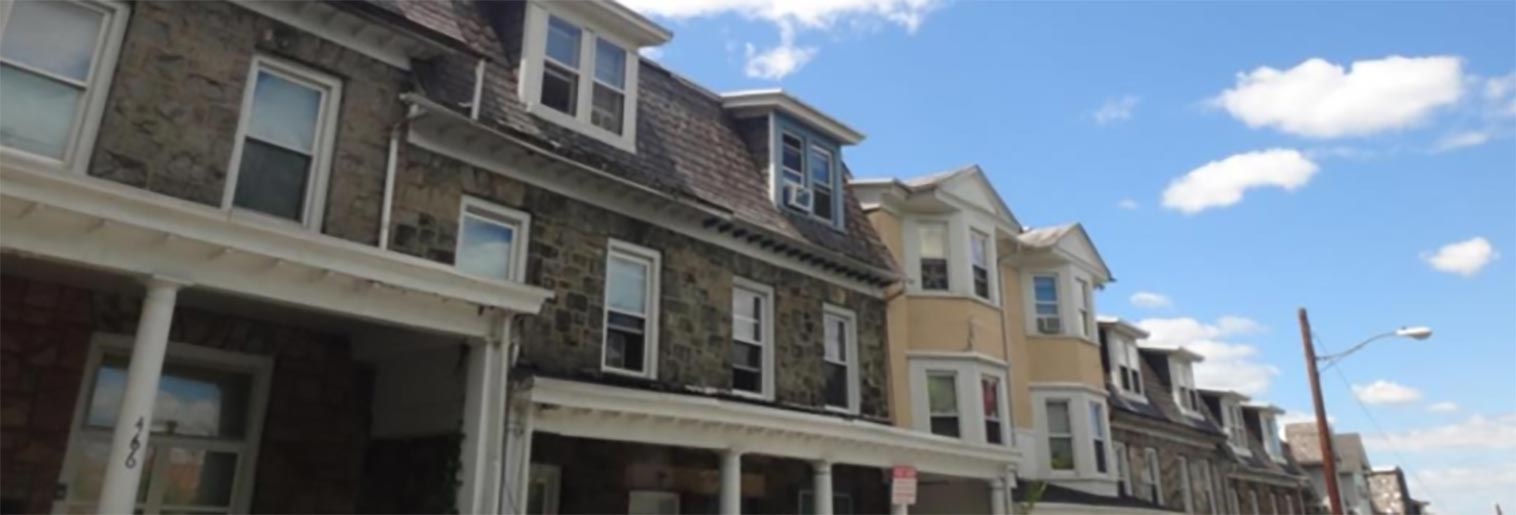Off-Campus Living
Off-campus releases are offered to a select number of eligible upperclass students. This housing option is a privilege and not guaranteed for undergraduate students. An off-campus lease should not be signed until a student has received formal approval from the University.
Eligible students who apply for and are approved (by the University) may rent from a private landlord, in non-University owned housing. The university anticipates releasing approximately 50 students off-campus for the 2024-2025 academic year.
If the number of students interested in living off-campus exceeds the number of students the University is able to release, rising seniors who meet eligibility will be approved in the order in which they apply or first come, first serve. If all eligible rising seniors are approved for release, rising juniors who meet eligibility will then be approved in the order in which they apply.
Students who do not submit the Housing Status Application by the deadline will not be considered for release later in the year, and will be assigned to on-campus resident status.
Click here to view facts and information regarding off-campus housing.
Off Campus Student Eligibility
- Junior or Senior, or 20 years of age on the first day of the fall semester
- Minimum 2.5 cumulative GPA
- Good financial and conduct standing
Changing Housing Status
For more information about changing to or from Off-Campus Status, explore the following resources:
- Understanding Off-Campus Housing Status
- Requests during the current academic year, please review the Policies and Procedures page.
- Requests for the upcoming academic year, please review our Guide to Housing Selection.
Meal Plans
Off-campus residents may elect to add a meal plan at any time. A complete list of meal plan options and requirements can be found on the Tuition & Fees page.
Off Campus Housing Considerations
Before signing a lease, consider the following items:
- Questions to ask:
- What current tenants have liked and not liked? Why?
- What types of problems have occurred, if any?
- Does the landlord provide service in a timely manner?
- Does the landlord live in the area? If not, was a name of a manager in the area provided?
- How are maintenance repairs done? Are maintenance concerns addressed in a timely manner?
- Finances
to consider:
- Security deposit
- Rent
- Cost of utilities
- Additional costs
- Bethlehem City parking permit (zoned areas)
- Impact of Off-Campus Status on your financial aid package
- Maintenance: Identify who is responsible for general maintenance issues, as well as snow removal and lawn maintenance.
- Parking: Off-Campus residents will only qualify for a Commuter Parking permit if their off-campus residence is outside of the half-mile radius from campus. Students living in the City of Bethlehem are subject to city parking ordinances. Parking regulations vary throughout the City of Bethlehem. Visit http://www.bethpark.org/ to review information about street parking and permits.
- Pet Policies & Deposits: Does the space allow pets and what is the cost associated it?
- Renter’s Insurance: Landlords do not carry insurance on students’ property and recommend that you have insurance. In the event of a natural disaster, theft, vandalism or fire, the tenant's personal belongings may be insured for their value. Students should check their parents’ homeowner policy to see if it will cover them in their off-campus location.
- Utilities & Amenities: What utilities are provided and who is responsible for the costs? What to consider when exploring internet providers.
- Garbage & Recycling:
- Trash collection information is available at (610) 865-7050
- Recycling Office at (610) 865-7082 or http://www.bethlehem-pa.gov/recycling/
- Disorderly Conduct
:
- Part of living off-campus is being a good neighbor. Please be aware of your rights around noise and behavior, as well as the rights of those in your community: http://www.bethlehem-pa.gov/ordinance/articles/ARTICLE0705.html#01
- City of Bethlehem Website: http://www.bethlehem-pa.gov/index.html

